BBA - Hospital Management
Kolkata | Durgapur
3 or 4 years
UG
MAKAUT
10+2 passed in any stream from a recognized board. Candidates appearing for Class XII final can also apply.
To complete admission online, follow the steps below:
The diverse career opportunities for a BBA in Hospital Management graduate include:

Tata Medical Centre

Narayana SuperSpeciality

Medica

Fernandez Foundation
Course Details OF Hospital Management as follows –
Are you ready to embark on a rewarding journey in the world of finance? The Bachelor of Business Administration (BBA) in Accountancy, Taxation &...
Read MoreAre you passionate about the dynamic world of hospitality and tourism? The Master of Science (M.Sc.) in Hospitality Management at NSHM Institute of...
Read MoreAre you passionate about holistic well-being and eager to explore the transformative power of yoga? The M.Sc. in Yoga (BL) at NSHM Institute of Hea...
Read MoreMeet our faculty members

Department of Hospital Management
Durgapur
Health Insurance, Epidemiology, Concepts of Digital Health, Case Work, Minor Project
Public Health, Health and Society, Gender studies, Climate studies, Analytics
MPH, Public Health, The West Bengal University of Health Sciences,
BHMS, Homoeopathy, The West Bengal University of Health Sciences,
Central Council for Research in Homoeopathy, JRF (Hom), February 2021, September 2021

Department of Hospital Management
Durgapur
Quality Assurance in healthcare, Hospital operations Management, Health education and Health communication
Quality assurance in Healthcare
MBA - Hospital Administration, Madurai kamaraj University
Bachelor of Physiotherapy, Integral University, Lucknow
0.2 Years

Department of Hospital Management
Durgapur
Health care services, Legal aspect of health, Introduction to public health, Concepts of digital health
Social work
Master's in Social Welfare
English Honours
Amik Institute of Management Sciences and Technology
2.8 Years

Department of Hospital Management
Durgapur
Hospital Quality Assurance Management, Hospital Operation Management, Human Resource Management and IR, Medical Record Sciences, Medical Ethics, Basic Concept of Health, Medical Terminology, Public Relations, Concept of Digital Health.
Research and Publications.
Perusing Doctorate in Management from Banasthali Vidyapith.
Masters from IIHMR, New Delhi
BPT from Burdwan Medical College and BIMLTS
MMC, Lucknow
4 Years

Department of Healthcare Management
Durgapur
Health Economics (UG, PG), Principles of Management, Materials Management, Hospital Inventory Management, Principles of Management and Organizational Behavior, Public Relations, Marketing and Strategic Management, Healthcare Marketing,
Research in Micro and Macro Economics, Econometrics, Publications in National and International Journals, Attending Workshops, FDP, MDP, attending and Presenting Papers in Conferences.
Ph.D (Economics), Vidyasagar University,
M.Sc Economics, University of Calcutta, MBA, PGDMM
B.Sc Hons. in Economics, University of Calcutta,
Institute of Guide and Success - Management Institute
17 Years
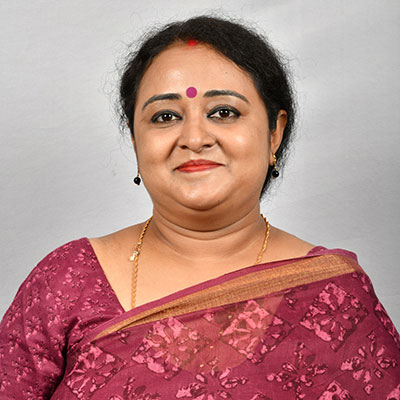
Department of Healthcare Management
Kolkata
QUALITY MANAGEMENT, HEALTH EDUCATION AND HEALTH COMMUNICATION, LEGAL ASPECTS OF HEALTH
Quality Management, Public Health
Post Graduate in Public System Management (Hospital and Health Care Management), IISWBM
B.Com (Hons) , University of Calcutta,
George College
19 Years

Department of Healthcare Management
Durgapur
Hospital Operations Management, Public Health, Epidemiology, Support and Utility, Hospital Planning, Hospital Overview.
Public Health and Epidemiology
MBA Healthcare and Hospital Management, IISWBM
B.Sc. Anthropology, , University of Calcutta
1.1 Years
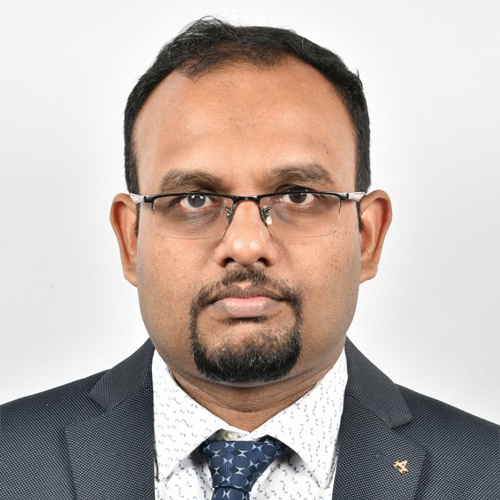
Department of Healthcare Management
Durgapur
Hospital Management, Healthcare Marketing, Public Health, Epidemiology, Hospital Facility, Design and Management, Health Informatics and Corporate Governance
Corporate Governance, Health IT, Hospital Business, Market Research
MBA in Hospital Administration, Full Time Regular MK University,
Health Informatics/IT Regular Manipal Academy of Higher Education, Manipal, Karnataka
Cornish Healthcare Ltd, Cochin, India
5 Years in Teaching and 8 Years in Corporate. Years
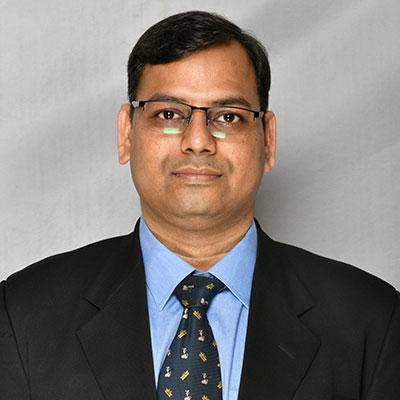
Department of Healthcare Management
Kolkata
Health Care Marketing, Hospital Planning, Health Insurance, Support and Utility Services
Teaching, Training, Conferences & Workshops
Pursuing
Masters in Hospital Management, Osmania University,
BA (Hons), Magadh University
MV Hospital for Diabetes, General Manager
8 Years
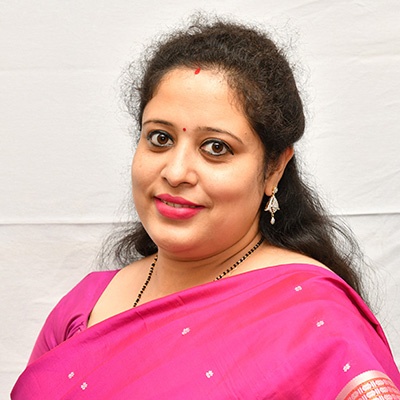
Department of Healthcare Management
Durgapur
Support & Utility Services, Medical Records, Human Resource Management
Hospital Operations
MBA in Healthcare Management
Graduate in Economics, Political Science & Sociology
9 Years
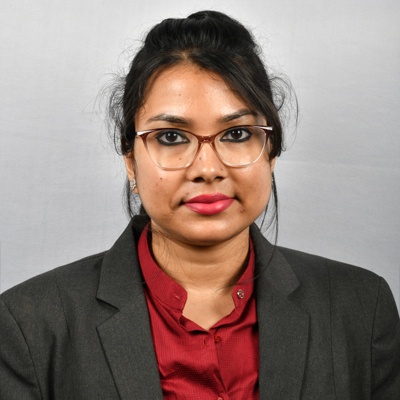
Department of Healthcare Management
HOSPITAL OPERATIONS PLANNING( 1st semester) Health & wellness (1st semester) Medical Records Science (3rd Semester) Epidemiological Transitions in Healthcare(5th semester) Support and Utility Services-II (5th semester)
Research work related to public health, waste management, green hospital architectural planning.
MPSM( HEALTHCARE & HOSPITAL MANAGEMENT) IISWBM UNIVERSITY OF CALCUTTA
Bsc in Food & nutrition university of Calcutta
Institute of Management Study
7 Years